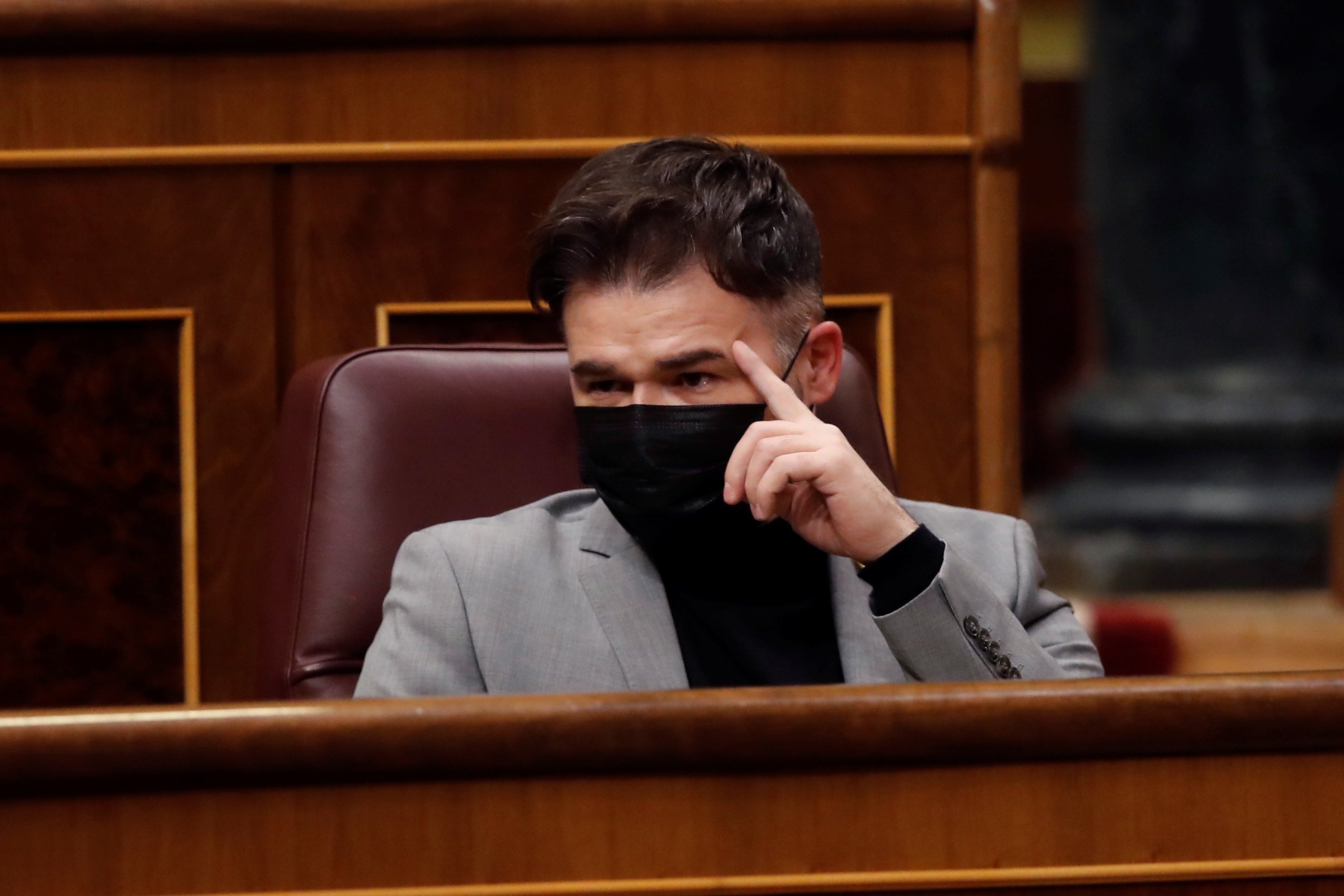It was the chronicle of a death foretold. This Thursday, the Congress of Deputies rejected the motion of the Catalan Republican Left (ERC) calling for Spanish and Catalan authorities to negotiate an independence referendum for Catalonia. It was defeated through the votes against of Spanish Socialist (PSOE) MPs and the abstention of their alternative left allies, Unidas Podemos. Jaume Asens, spokesperson for the latter group, tried to justify the abstention by insisting that before bringing such a proposal to Congress, it needs to be discussed at the Spain-Catalonia dialogue table. But the final numbers on the Congressional scoreboard were overwhelming: 38 votes in favour, 276 against and 36 abstentions. It only received support from ERC, JxCat, the CUP, the PNV, EHBildu, Més País and Compromís. The rest voted no on consulting the views of the Catalan people.
Specifically, the motion presented by ERC spokesperson Gabriel Rufián urged the Spanish government to "negotiate a referendum on self-determination with the government of the Generalitat of Catalonia as an agreed and democratic solution to the political conflict." During the debate, this Thursday, knowing that the motion was doomed to failure, the Catalan parties focused their speeches on the scenario that has emerged from last Sunday's elections. Both ERC and JxCat were strongly critical of the Comuns - the Catalan part of the Unidas Podemos group - for two reasons: their abstention on the motion, and their gesture of "tweeting" against the imprisonment of rapper Pablo Hasél but not acting on it from the Moncloa government palace. In spite of this, Rufián challenged both the CUP and the Comuns to form a “broad front” in the Generalitat where the left “predominates”.
The positions within the Spanish government were well known before the debate. Socialist spokesperson in the Congress of Deputies, Adriana Lastra, presented her 'no' vote as something everyone should take for granted. "No one should be surprised by the PSOE's position against this motion," she had said at a press conference on Tuesday. Lastra said that "we are the party of dialogue, as has been endorsed by the Catalans." And therefore, she concluded, "along this path, we will move to the dialogue table when the new government of Catalonia is formed." A dialogue table, it should be noted, where they do not contemplate accepting a referendum on self-determination.
Unidas Podemos introduced some nuances. Jaume Asens emphasized that the independence referendum is part of the group's electoral programme, in case anyone doubt it. However, he considered that it was "not serious" for ERC to raise the issue through a motion in Congress two days after the Catalan elections. For all these reasons, his group abstained, he said, because the place this consultation should be addressed is not in the lower house of the Spanish Parliament, but at the dialogue table between the Spanish state and the government of the Generalitat.

